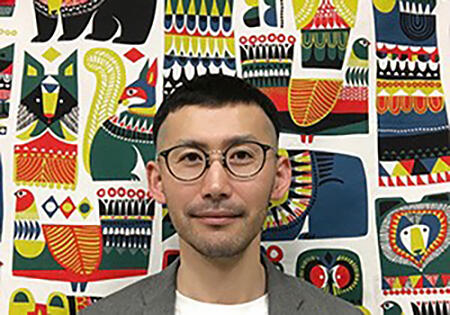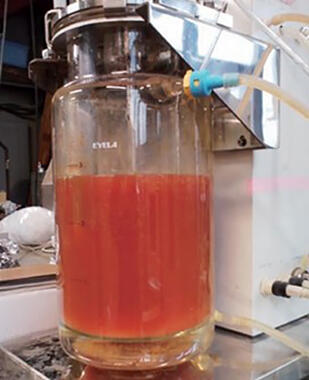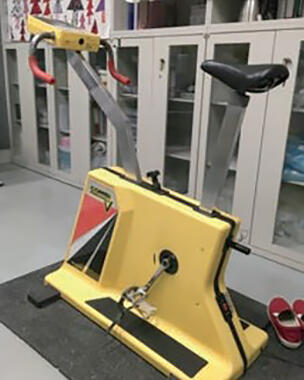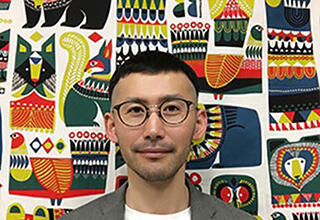
Associate Professor, Division of Environmental Engineering, Faculty of Engineering, Hokkaido University
Q1. What were you interested in?
A1. I loved yokai (ghosts and monsters) and am fascinated by mysterious phenomena. I realized how interesting research is when I was in technical college.
I was a child with an interest in the mysterious, and I loved ghosts and monsters like those in Shigeru Mizuki's GeGeGe no Kitaro. There are unscientific phenomena in this world, and the varied types of microbes that are the focus of my research are still a strange existence to us. My childhood interest in ghosts moved on to microbes, but I am still always fascinated by mysterious phenomena and existences that do not have a scientific explanation.
After I graduated from junior high school, I entered the National Institute of Technology, Nagaoka College. There were a lot of practical lessons with hands-on learning, and I realized how interesting experiments and research are from my studies there. That course lasted five years, and after finishing a two-year advanced course I moved on to graduate school and began to walk the road of a researcher.

The red tinge increases as the microbes grow.
I was really inspired when the culture developed to this extent after more than two years.
Q2. Can you tell us some specific details about your research?
A2. I'm proposing the recovery of nitrogen compounds using a catalyst derived from microbes.
More than 90% of the microbes around us are not able to be cultivated in laboratories. As a result, it is difficult to carry out accurate analysis or identification, and we can't even gain a complete picture of microbes. It may be unthinkable in other research areas, but in this field we can be acknowledged even if we present the conclusion that "theoretically, there was no explanation" in a paper. I'm fascinated by this world overflowing with strange things and am continuing my research.
Through the Fusion Orientated REsearch for disruptive Science and Technology (FOREST) program, I'm engaged in research that makes effective use of reactive nitrogen released into the environment. Nitrogen makes up 80% of the air, and is normally used as a chemical fertilizer for crops and for synthetic fibers such as nylon. It's a key element that is closely connected to our everyday lives. Consequently, it is thought that demand will gradually increase as the human population grows in the future.
However, a huge amount of energy is needed to transform the nitrogen in the air to a highly versatile fertilizer such as ammonia. Furthermore, many manufactured nitrogen compounds enter lakes and the sea without being used and are the cause of eutrophication. I am researching techniques to return the nitrogen released into the environment in the form of nitric acid and nitrous acid to valuable substances such as ammonia and hydrazine using the power of microbes. I want to build a system to convert nitrogen to valuable substances through techniques that use the microbes I have found during my research, and implement this in society. If anyone is interested in the environmental problem of nitrogen, have a look at Kentaro Hayashi's Zusetsu Chisso to Kankyo no Kagaku: Hito to Shizen no Tsunagari to Jizoku Kano na Chisso Riyo (Illustrated Nitrogen and Environmental Science: The Connection Between People and Nature and the Sustainable Use of Nitrogen).
Q3. Could you say a few words to people aiming to become researchers in the future?
A3. There is no better way to learn than "70% experience;" if you are resolved then first take up the challenge.
I want them to proactively focus on their interests and build up a lot of experience. The 7:2:1 rule says that 70% of human learning "is gained from experience." Advice from seniors and learning from textbooks is important, but it won't match the information they get from experience. They should find the knowledge that is really necessary for them from among the large amount of information gained through experience.
It's hard to gain clear answers and results in microbe research, but if we don't try things we'll never know. I, too, want to proactively focus on my interests and concerns without hesitation.


Profile
From Niigata Prefecture.
Graduated from the Socio-Cultural Environmental Studies Doctoral Course, Graduate School of Frontier Sciences, the University of Tokyo in 2009.
PhD (Environmental studies)
He took up his current post in 2020, after working as a doctoral researcher at the Faculty of Engineering, Hokkaido University, a visiting researcher at Radboud University in the Netherlands, and an Associate Professor at the National Institute of Technology, Nagaoka College
Supervisor since 2022.




